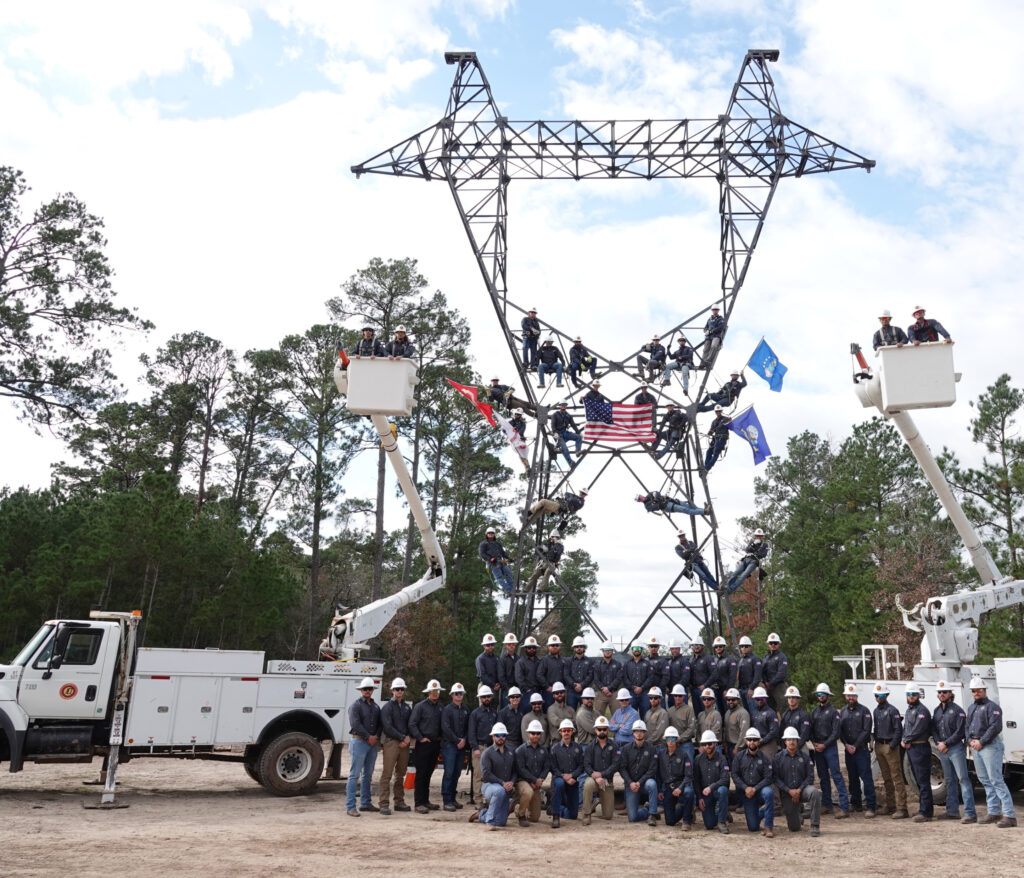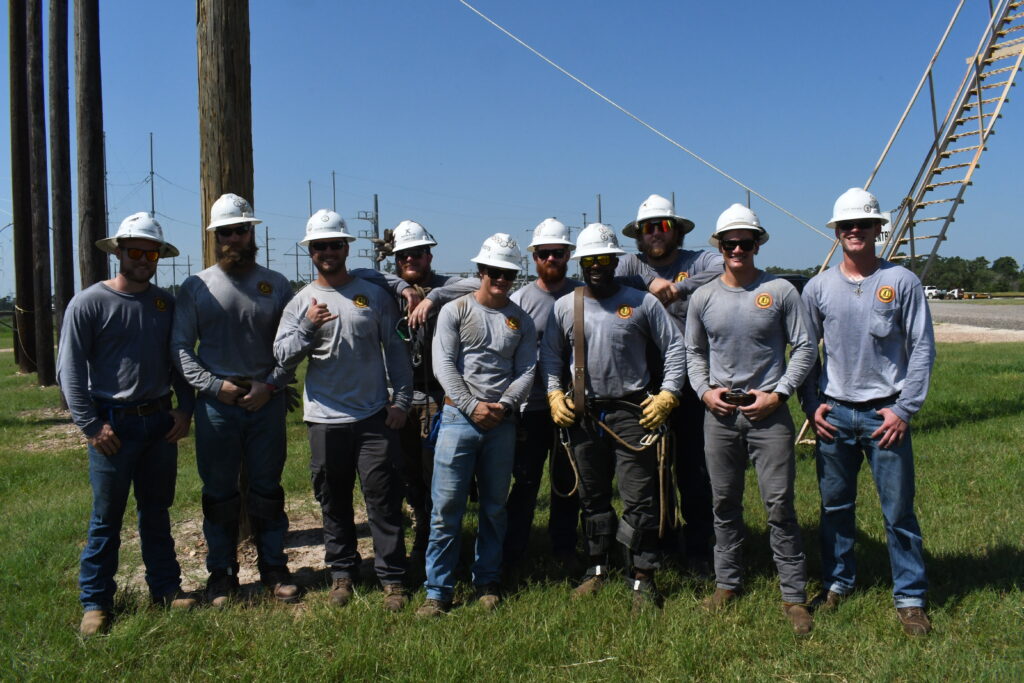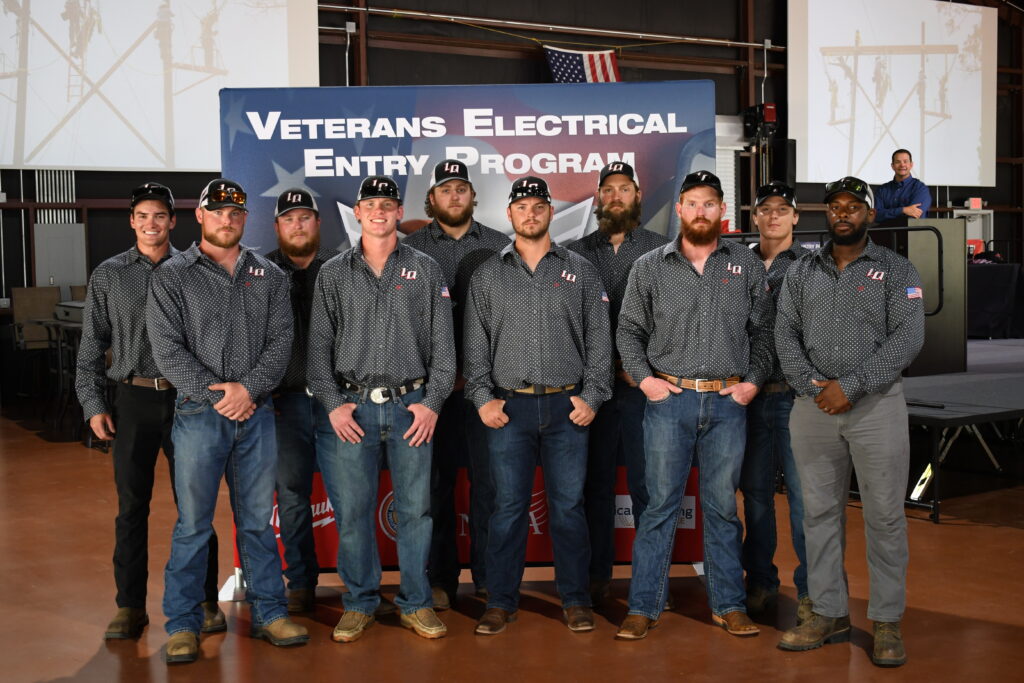Lineman
What’s it like being a Union lineman?
First off, congratulations on taking interest in one of the most elite professions in the construction industry. Linemen are a rare breed and have one of the most dangerous jobs in the country. Becoming a Journeyman Lineman takes pride, craftsmanship, a good attitude, and a strong work ethic. It can be a grueling yet rewarding process. You will have to make tough decisions and sacrifices along the way. You may have to work 7 days a week, 16+ hour days, for weeks, on storms, 24+ hour shifts on call outs, work in the extreme heat, freezing cold, rain, snow, sunshine, and deal with tough terrain, but in the end when you get that Journeyman Lineman ticket in your hands, you will open your world to opportunities and paths you never thought possible. So, if you think you still want to become a Lineman, let’s talk about the steps and paths to take.
The International Brotherhood of Electrical Workers is the union that has represented electrical workers since 1891. It was founded by a lineman named Henry Miller and represents roughly 750,000 men and women in the electrical industry. To get started in the IBEW you will need to contact your nearest IBEW local union hall. You can join as a groundman and sign the books there at your home local and any other IBEW local in the U.S. Also, apply to every union apprenticeship you can and start your apprenticeship with the one that gives you the first opportunity. You must have your Class A CDL to get a groundman ticket and to apply for the apprenticeships.

The IBEW has 9 apprenticeships that are broken up into jurisdictions covering multiple states. SELCAT, NEAT, NW LINE and CAL/NEV have a jurisdiction clause that states you must live in their jurisdiction to apply. Once accepted into an IBEW apprenticeship you will be on your way to being trained in all aspects of linework including, transmission, distribution, underground, and substation work. The apprenticeship will take you 3.5 to 4 years to complete. After completion, you will receive your Journeyman Lineman ticket, Department of Labor certificate, and college credits. While in the apprenticeship you will receive the union benefits which include medical, dental, and vision health insurance (100% paid by the contractor) for you and your family, 2 pensions, and 10-25% of your gross wages matched by the contractor and put into your retirement. The pros of the IBEW are the wages, benefits, training, and having a voice in your working conditions.
Participant Interview
Hear from a former VEEP participant about the Lineman program!
Lineman Selection Process
1. Submit Application
2. Virtual Interview
3. Applicants are Ranked
4. Attend Town Hall
5. Selection
6. Show Up for Class
7. Drug Tested
8. Aptitude Test
Basic Tasks
- Strings, splices, transfers and sags wire in energized or de-energized circuits and connects wires and transformers as specified or directed. Shortens or lengthens lines by adding or removing wire, using a variety of types of splices, connectors, sleeves or clamps. Regularly works above ground on poles or steel towers using climbers and safety belt or operating man lift equipment, boom truck or other specialized equipment. Uses a variety of underground locating and fault finding equipment.
- Routes or re-routes power lines over, under or around existing lines and structures, regularly working above, on, or in close proximity to energized lines. Selects and uses a variety of “hot line” tools and makes use of rubber gloves, line hoses, mechanical jumpers, fiber guards, blankets and other protective devices as specified. Works on all voltages as required throughout the system.
- Installs, removes, transfers, maintains and/or repairs cross arms, pins, insulators, guys, transformer and switch racks and other overhead pole and Underground Residential Distribution (U.R.D.) equipment using a variety of hand tools, equipment and power tools.
- Installs and removes transformers, including primary and secondary current transformers and self-contained meters; cut-outs, disconnecting switches, circuit breakers and other overhead line and U.R.D. devices, rigging block and tackle where necessary or working with ground crew and winch to raise or lower equipment. May install street and area lights, working with primary and secondary voltages. May change transformer locations on maps.
- Performs line switching or sectionalizing as directed. Performs emergency repairs, phases and connects circuits under load; performs load checks and balances feeders as required.
- Inspects lines, poles and equipment for signs of damage or wear and reports deficiencies.
- Assists in carrying poles, digging holes, piking and guying poles and other such operations involved in the setting or replacing of poles; may erect steel towers.
- Assists in on-the-job training of apprentices and other crew members in maintenance and construction of power lines.
- May troubleshoot electrical problems on Company and customer equipment.

Minimum Requirements
Requires journeyman level experience installing and maintaining overhead and underground power lines. Requires valid commercial driver’s license (CDL), first aid certification, competency in CPR and pole top rescue. Other combinations of education/experience may be considered.
- High School Diploma or GED
- Minimum Age Requirement of 18 years old.
- Valid Driver’s License: Must have a valid driver’s license, with a clean driving record.
- Physical Fitness: Ability to meet the physical demands of the job, including climbing poles, lifting heavy equipment, and working in various weather conditions.
- Drive a Lag – Drive a 4-inch lag into pole, under a predetermined time.
- Construct & Install Crossarm – Construct a set of arms and install the correct hardware on the arm, under a predetermined time.
- Handline – Pull 50 lb. weighted grunt sack to the top of tower & lower back to ground with handline, under a predetermined height and time.
- Haul Pole Pieces – Manually carry pole pieces (68-79 lbs.) across field, under a predetermined length and time.
- Obstacle Course – Remove sets of bells, carry wood cross arm, hang set of bells, under a predetermined time.
- Basic Math, Algebra I, Reading Skills and a basic understanding of electricity: Required to understand safety regulations, manuals, and work orders.
- Working in Hazardous Environments: Must be comfortable working at heights, around high-voltage equipment, and in confined spaces. Work in tough and rugged outdoor environments throughout the year.
- Drug Testing and Background Check: Required to pass a drug screening, regardless of your state’s approval status, screening and pass a background check.
- Ability to Work Irregular Hours: Must be able to work overtime, nights, weekends, and respond to emergencies as needed.
- Teamwork and Communication Skills: Ability to work well with a crew and communicate effectively.
- Commitment to Safety Practices: Awareness and willingness to adhere to safety standards and regulations.
- Basic Mechanical Skills: Understanding of basic tools and machinery, including the ability to learn how to operate specialized equipment.
- Required to pass an aptitude test or other specific qualifications based on the location or program.

Interested in
Participating In Veep?
Find a Cohort Near You
Ready for that next step? Click the link below to view upcoming Cohorts for both Electricians and Linemen.
